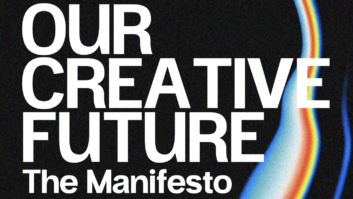
By Peter Suchet, development director, CTBF
Spending in the UK film production sector broke the £1 billion barrier for the very first time in 2013, up 14 per cent on the previous year (as announced by the BFI in January of this year). This growth was mirrored on the small screen with £276 million production spend that same year, across high-end television and animation. From the BBC’s critically-acclaimed Sherlock gaining international recognition, to British films such as The Theory of Everything and The Imitation Game which are vying for BAFTA and Oscar success, our nation’s content is highly-prized, widely viewed and heavily in demand – and our filmmakers are rising to the challenge of matching this demand with a dizzying creative output of their own.
In a changing digital landscape, filmmakers and decision makers alike have been unafraid to pursue the platforms of the future – see BBC Three’s brave adoption of the online space. New platforms present new and wider opportunities to reach broader audiences. It is no longer simply the demands of conventional television that must be met, but our desire to consume entertainment on multiple screens, at home or on the move. There is a fresh wave of digital-savvy British filmmakers, television producers and writers, ready to rise to the challenge of fulfilling this need for content. Hungry to make their mark, yet realistic enough to know that big budgets don’t fall into many laps, they are aware that the ability to shoot film on our phones, to create previously unimaginable special effects on laptops, or launch crowdfunding programmes across social media, democratises the production process. Neither age, race, wealth, nor gender should be a barrier to creating outstanding content and, through online platforms, these emerging creatives have access to a vast audience.
Complementing this over recent years has been the BBC’s gradual withdrawal from non-news programme-making in the UK, which, according to a recent PACT report, saw an in-house share of output decline from 77 per cent in 2000 to 52 per cent in 2013. As a result, there has been an undeniable surge in the establishment of UK based indies – meaning that locally based and/or centred independent production companies have the ability to gain a wider portfolio of programming and formats, while sourcing material from a broader spread of regional clusters across the UK.
Our creative demographic is altering, widening the net and providing a greater representation of our society today. The diverse audiences which have always existed, are now increasingly, and rightly, demanding to see this diversity reflected on screens and behind the camera. Ultimately, the audience has a greater influence in deciding the kind of stories which are told, ensuring that they genuinely resonate with people from all walks of life, cultures and backgrounds.
With changes afoot in our industry, and the increase in demand for diverse content continuing to climb, it is now the responsibility of independent bodies to offer the support needed to give a break to these talented individuals, from all walks of life.
The CTBF (Cinema and Television Benevolent Fund), the leading charity for those working behind the scenes in UK film and television since 1924, has continuously recognised the importance of providing equal opportunity for rising and established filmmakers, regardless of circumstance. One of the charity’s key initiatives, The John Brabourne Awards (JBA), provides grants of up to £5,000 as a stepping stone for those who have faced difficulties within their personal or professional lives, whether these be financial hardship, accident, bereavement or illness. The range of our applicants varies year-on-year, with 2014, generating 50 per cent uplift in applications with a total of 184 people requesting JBA support. Of these, nine applicants have received Awards – six of whom are women. It is clear that we are seeing a dramatic shift in our applicant demographics, and today, we see not only young talent struggling, but also established talent with multiple professional credits, keen to take their career to the next level.
Lenny Henry, in his speech to Parliament back in June, on the topic of diversity, rightly identified that the likes of “Chiwetel Ejiofor and Idris Elba didn’t need more training, they just needed a break.” Now, as the demand for increased content creation escalates, we have more than enough means to launch talented individuals into the spotlight – and we’re hoping to see the industry continue to rise to that challenge.







